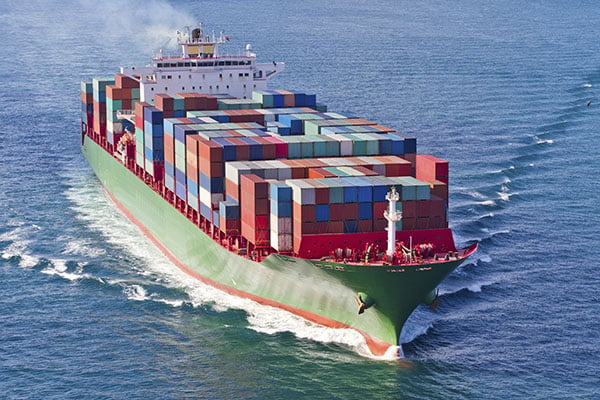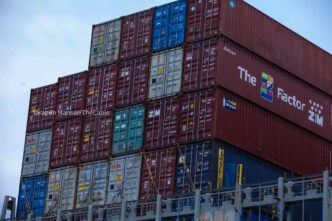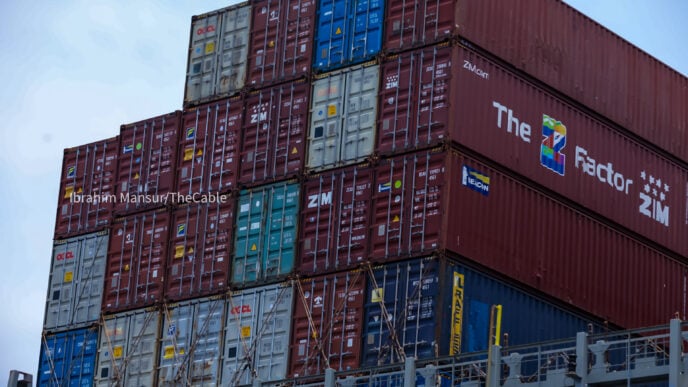BY MUNTASIR ADAMU KANAM
Let us strip away the illusions: Nigeria does not suffer from a shortage of ships. What we suffer from is a shortage of seriousness.
On paper, we look impressive — over 4,000 flagged vessels and more than 1,000 cabotage vessels. Enough to present us as a maritime giant in Africa. But statistics are seductive; they tell only part of the story. Scratch beneath the glossy numbers and a quieter tragedy emerges: too many of these vessels are idle, rusting away in our ports like forgotten toys. Meanwhile, shipowners spend millions of dollars annually to service their vessels abroad in Ghana, Togo, and even as far as Europe and Asia.
According to credible estimates, Nigeria bleeds roughly $147.8 million every single year in docking fees and repairs paid to foreign shipyards. Pause for a moment and let that figure sink in. That is not just a statistic; it is a haemorrhage. It is money that could be circulating in our economy, paying workers, expanding drydock facilities, stimulating coastal towns, and creating thousands of jobs. Instead, we are engaged in the paradoxical act of exporting prosperity while importing poverty.
Advertisement
A Ferrari in the Garage
Why is this happening? The convenient answer is “mismanagement.” But that word is almost too polite. It masks a deeper malaise: our national habit of building monuments without mechanisms. We pour billions into infrastructure, only to leave it rotting in the shadow of bureaucratic gridlock.
Take the Onne Port Complex in Rivers State. Conceived as a world-class hub for oil and gas logistics, it was supposed to rival anything in West Africa. Yet for years, berths 9 to 11 were virtually abandoned. Today, activity has picked up somewhat, but vast sections remain underutilised. To compound matters, over 2,000 containers worth trillions of naira are stranded at Onne, trapped by policy bottlenecks and operational inefficiencies.
Advertisement
How do you build a Ferrari and then leave it parked in the garage, while your neighbours zoom past with their Toyotas? That, in one sentence, is Nigeria’s maritime story — dazzling assets, wasted opportunities.
The Ship Management Solution
Yet, it doesn’t have to be this way. There are proof points. NBC Maritime Ltd, led by Captain Nicholas Bernard, has quietly rehabilitated more than 33 vessels once written off as dead investments. Their tool of choice? Ship management.
Ship management is straightforward. It means handing over the day-to-day running of vessels (maintenance, crew recruitment, compliance, insurance) to professionals. Owners retain title, managers sweat the asset. Everyone wins. This is not rocket science. It is common sense. The tragedy is not ignorance; the tragedy is our refusal to apply what works.
Advertisement
Globally, this is how shipping thrives. Greece, for instance, controls nearly 20% of the world’s merchant fleet, not because they build the most ships but because they manage them efficiently. The Philippines has built a global reputation, not by owning fleets, but by supplying and managing some of the world’s best-trained seafarers. Nigeria, with its coastline and its oil exports, should be positioning itself in that league.
The Banks’ Blind Spot
Here is another twist: Nigerian banks. They finance ships, often with expensive loans. But when repayment goes bad, they suddenly realise they cannot operate ships. They can only seize paper assets while the vessels deteriorate into scrap.
The truth is stark: the risk is not the ship. The real risk is the absence of management. A poorly managed vessel will always sink financially; a well-managed one will remain profitable. If Nigerian banks made professional ship management a condition for financing, non-performing loans in the maritime sector would reduce drastically. But instead, banks treat shipping like an exotic gamble they do not fully understand.
Advertisement
Why This Matters
Every idle vessel is a lost opportunity — lost revenue, lost taxes, lost jobs. But imagine the reverse:
Advertisement
-
Port activity surging, bringing in foreign exchange.
-
Thousands of jobs for seafarers, engineers, compliance officers, and agents.
Advertisement -
Investors regaining confidence because structure replaces chaos.
-
Exports becoming more competitive as inefficiencies vanish.
Advertisement -
Local drydocks and shipyards expanding to capture business now fleeing to Ghana and Côte d’Ivoire.
Ship management is not about keeping vessels afloat. It is about keeping the economy afloat.
From Liability to Opportunity
Globally, shipping is a $2 trillion industry. Nigeria, blessed with oil exports and a prime location on the Gulf of Guinea, should be taking a much bigger slice of that pie. Some studies suggest that structured ship management could add as much as $44 billion annually to our GDP essentially creating another oil industry without drilling a single barrel.
So, picture a Nigeria where every ship is active, every loan is recoverable, every port is buzzing. Ship management, then, is not a safety net. It is not a stop-gap. It is a growth strategy. It is the line between turning liabilities into assets and turning opportunities into regrets.
The Final Word
Our tragedy is not the lack of vessels. Our tragedy is the lack of vision to manage them. For shipowners, banks, regulators, and policymakers, the message is brutally simple: stop the waste. Stop exporting billions in repair contracts. Stop letting vessels rust while unemployment festers.
Nigeria does not need to buy more ships. Nigeria needs to manage the ones it already has. That is where the billion-dollar question lies.
Muntasir Adamu Kanam can be contacted via [email protected]
Views expressed by contributors are strictly personal and not of TheCable.











